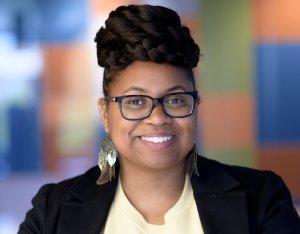Presented By: Engineering Education Research
Building the Whole Black Child: Facilitating Engineering with Respect to Culture
Tikyna Dandridge / University of Michigan

Engineering education intentionally excludes and pushes out learners who do not uphold traditional Eurocentric standards for thinking and practice of the profession. Facilitators who uphold such standards gatekeep the discipline and perpetuate the marginalization of racially and ethnically diverse youth when they do not orient the learners’ cultures in their teaching and practices. Oftentimes, to obtain academic and professional achievement, facilitators encourage Black youth seeking entry into the engineering pathway to suppress their culture, linguistic literacy and practice, and history. Given the educational debt that persists in K-12 education for Black American youth, meaningful culturally oriented facilitation is crucial as it often determines whether a learner may persist or perish along their engineering pursuit. Most importantly, the culturally informed engineering facilitator has the power to extract the brilliance and ingenuity that Black youth bring into the engineering classroom. In this talk, I discuss the significance of a culturally centered engineering facilitator on Black American youth’s engineering learning. Founded on asset-focused culturally relevant and sustaining frameworks, I explain how the ethos, beliefs, and training of a multifaceted facilitator influenced engineering learning and practice for Black youth at an interdisciplinary summer camp within an urban creative arts community learning center— Hit Makers Summer Camp. I also detail how culturally relevant and sustaining facilitation guided Black youth to rationalize their place in engineering. Finally, I discuss implications for educational research, teaching, and professional development for engineering educators and initial steps on how the Engineering Education Research community could implement initial policies that maximize cultural prosperity to contribute to diversity, equity, inclusion, and justice in engineering education.